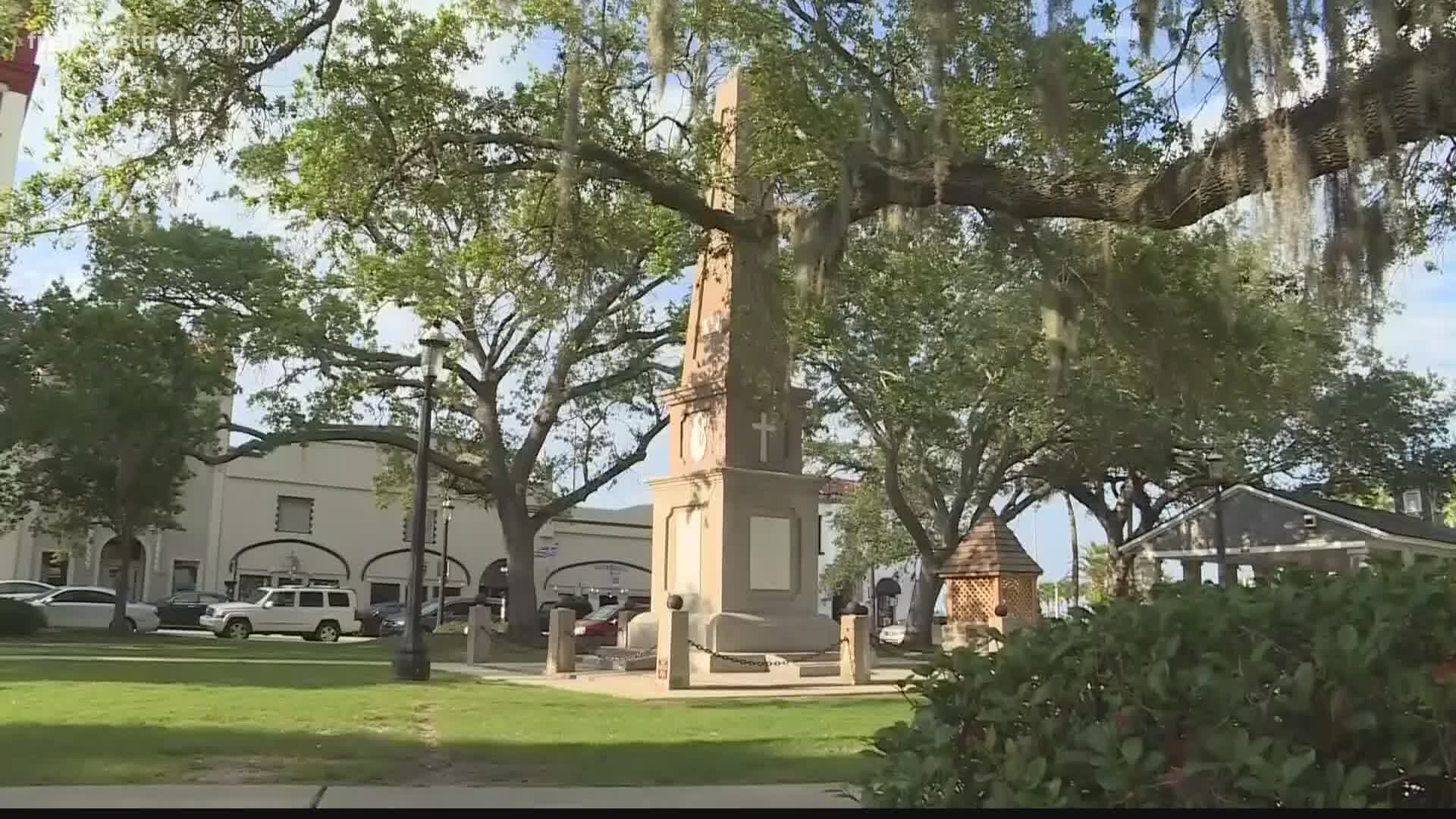ST. AUGUSTINE, Fla. — Confederate monuments around the country are being taken down as protests for racial justice continues. In St. Augustine, the city commission voted 3-2 to remove the Confederate monument in the Plaza de la Consticion.
Dr. Michael Butler teaches at Flagler College, steps away from the monument. He says people may interpret the meaning of the monument differently, but you can’t change history.
A lawsuit against the city says the monument does not vindicate the war, but instead it remembers the loss and sorrow of losing someone in the war. The plaintiffs in the case are descendants of those memorialized on the monument.
Butler, a professor and a historian who has been researching, writing, and teaching about the Civil War for years, says that is not the historical meaning on the monument.
“The reasons that individual soldiers participate in the war, well those reasons differ from one individual to the next, but the government they served seceded to preserve the institution of human slavery. Period," Butler explains.
He explains it was moved from a less centralized area of St. Augustine to the center of town in 1879 for greater visibility during reconstruction era. That's the time period after the Civil War ended when the government tried to remedy the inequities of slavery.
Butler says putting the monument in the middle of town sent a message that the city was “unreconstructed” meaning the south may have lost the war but they would retain their cultural differences.
"These monuments, these statues, these obelisks - that was the first attempt to rewrite the history of the Civil War," Butler said. "It can be argued, and I think it’s within the historical scholarship on this topic, that removal of these objects is meant to correct historical record.”
He says this memorial may mean something very different to some people today. You can tell by the flowers left on the fence that there are people who want the monument to remain in the center of town.
The professor says that doesn’t change the original meaning of the confederate monument.
This isn't the first time the city grappled with what to do with the monument. In 2018, Butler was a part of a Confederate Memorial Contextualization Advisory board along with a group of people with diverse backgrounds. The board was formed after the white nationalist rally in Charlottesville in 2017.
The city selected a group of diverse people to help them find a way to tell a "deeper more inclusive history of the Civil War."
"Citizens give it meaning," Butler said. "So what we wanted to do is have four different interpretive plaques on the base of the monument that gave what we considered proper contextualization and the city went through with all of that.”
He says it’s important to put this monument into context with what is happening around the country. He believes it’s time for it to come down.
If you want to dig deeper into this topic, Dr. Butler wrote a book on his research called "Beyond Integration". He also provided a reading list for people who want to learn more.
Kevin Levin, Searching for Black Confederates
Charles Reagan Wilson, Baptized in Blood
Gaines Foster, Ghosts of the Confederacy
Adam Domby, The False Cause
Karen Cox, Dixie's Daughters
David Blight, Race and Reunion
K. Stephen Prince, Stories of the South
Gary Galloper and Alan Nolan, eds., The Myth of the Lost Cause and Civil War History

